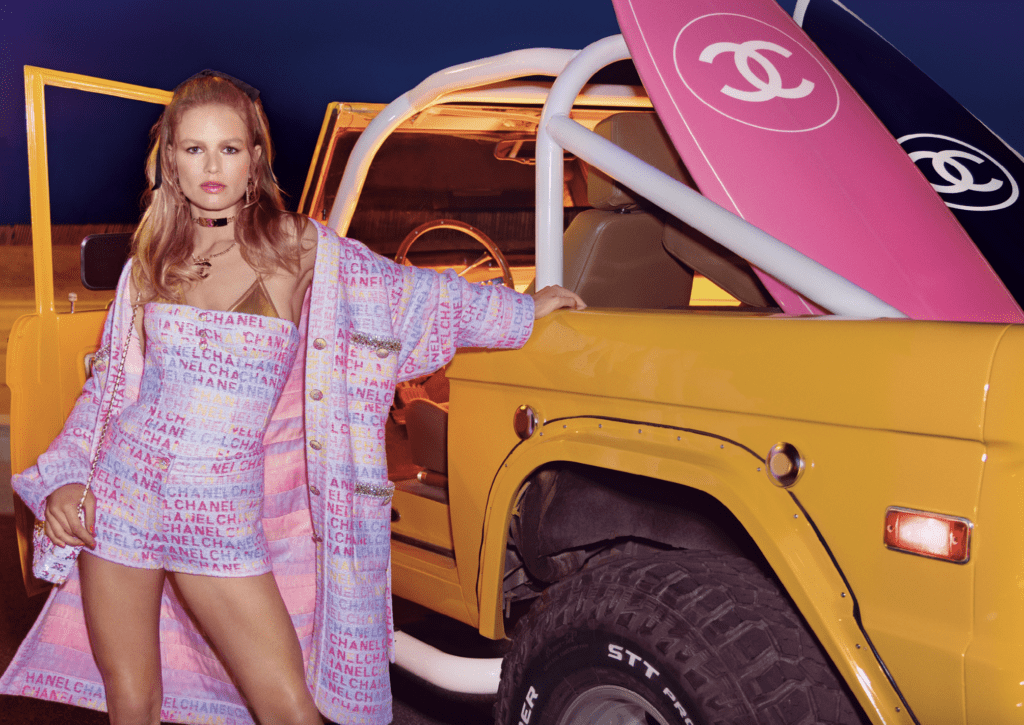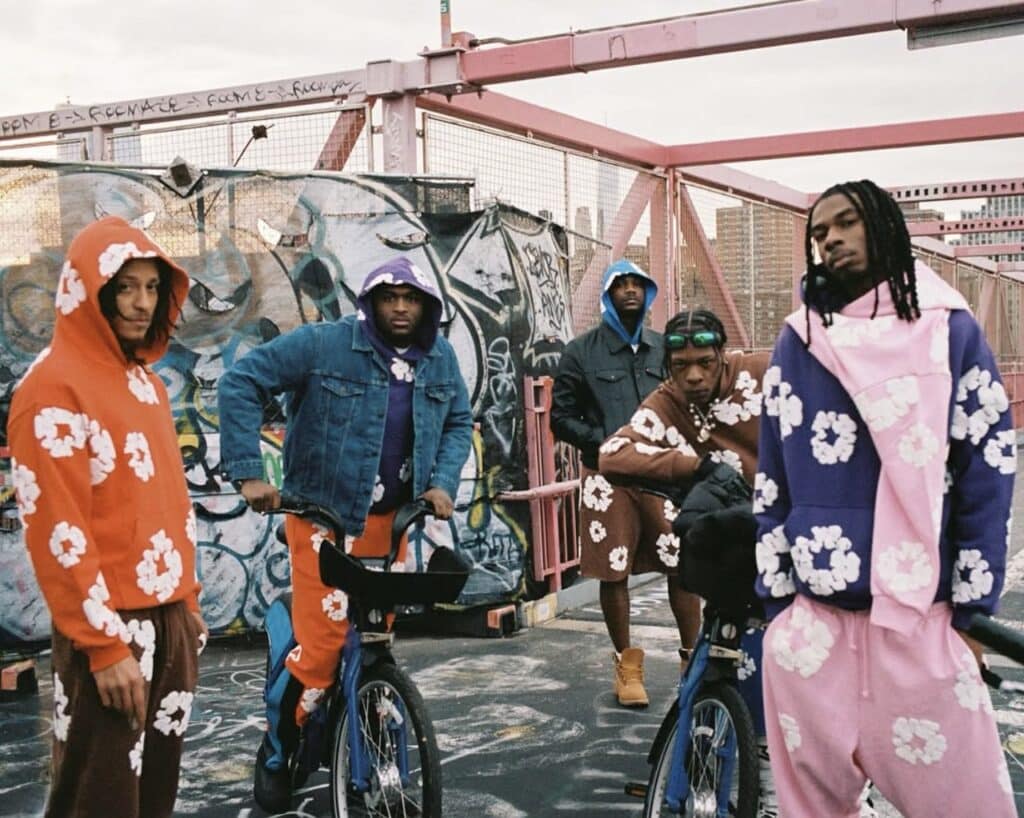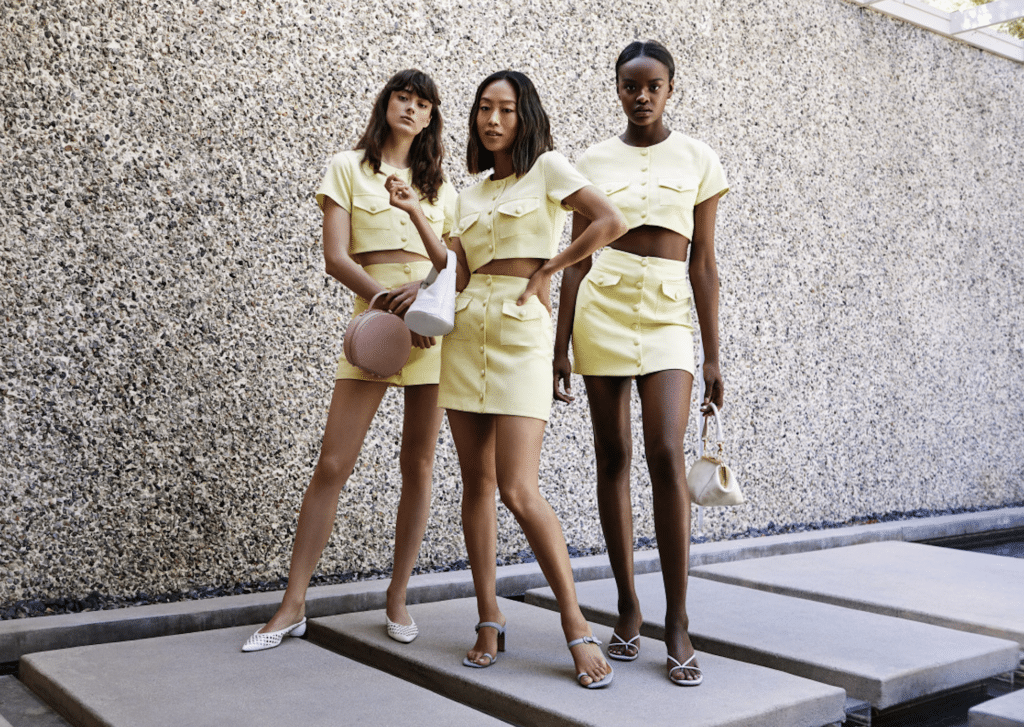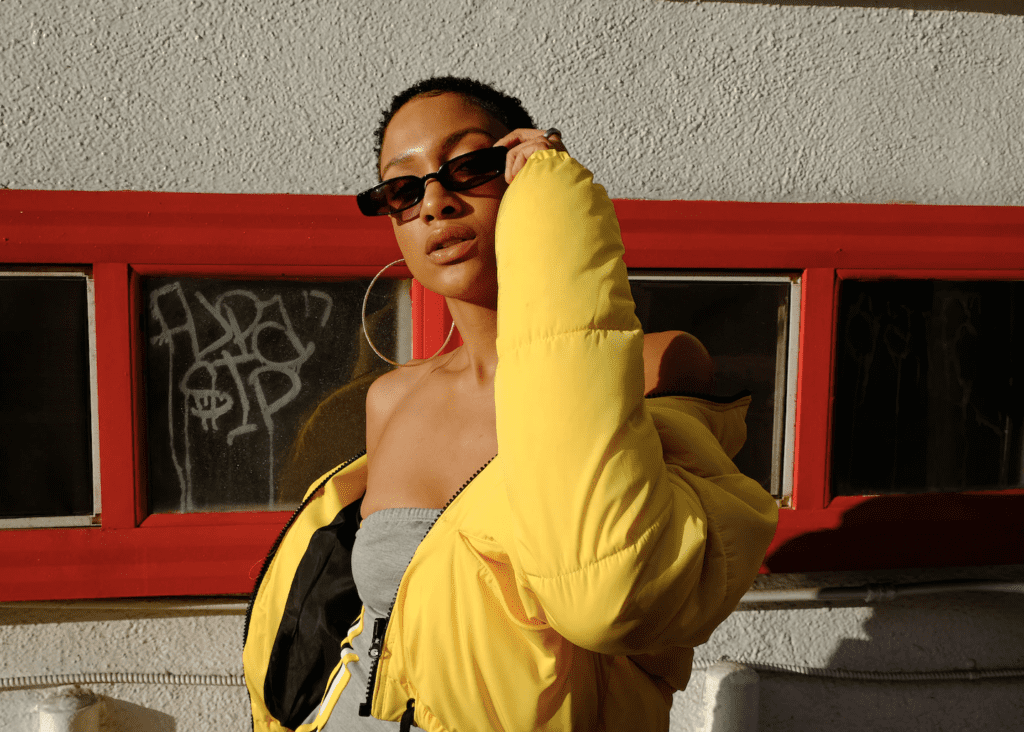Chanel and What Goes Around Comes Around (“WGACA”) are in the middle of the second phase of a trademark-centric trial in New York. On the heels of a favorable jury verdict for Chanel in February, the parties are at odds over equitable remedies, namely, whether the court should order that the luxury reseller be disgorged of profits that it made from its sale of infringing Chanel goods – and exactly how much it should pay to Chanel as a result. In a Phase II trial brief, as first reported by TFL, Chanel argues that disgorgement is the appropriate remedy here in light of the jury’s determination that WGACA willfully engaged in willful trademark infringement, false association, unfair competition, and false advertising.
Setting the stage in its July 12 brief, Chanel asserts that the only issue left for the court to decide in Phase II of the trial (which is a bench trial) is what equitable relief it is entitled to based on the findings of the jury. In particular, counsel for Chanel asserts that the court need not consider the issue of willfulness again since “the jury’s factual findings, including its findings of willfulness, are binding on the court.” At the same time, Chanel states that “courts in the Second Circuit and beyond consistently find that a jury’s willfulness determination supports the award of profits, without revisiting the jury’s willfulness determinations when balancing equitable factors relating to disgorgement.”
Against that background, the court should “defer to the jury’s binding verdicts on willfulness and find that the willfulness factor weighs heavily in favor of disgorgement,” per Chanel. And not limited to willfulness, Chanel maintains that the other equitable factors also “strongly weigh in favor of awarding [it] disgorgement of WGACA’s profits.” Delving into these factors, Chanel contends …
> WGACA Benefited from Its Unlawful Conduct: “Here, there was a plethora of evidence admitted in Phase I which demonstrates that WGACA intentionally used Chanel’s marks because WGACA Chanel’s marks created a ‘value added,’ despite WGACA’s knowledge that its uses were potentially confusing to the customer.” Indeed, Chanel points to the testimony of Shannon Parker, a WGACA employee that worked on WGACA’s social media posts, who “confirmed at trial that WGACA’s social media posts predominantly featured Chanel, including both the Chanel name and logos, because posts featuring Chanel drove engagement and sales.” (Emphasis courtesy of Chanel.)
On this point, Chanel also claims that the evidence to be presented in Phase II of the trial demonstrates that WGACA earned over $129,943,593.00 in revenue from its sale of CHANEL-branded items.
> The availability and adequacy of other remedies: The statutory damages awarded by the jury “are not an alternative remedy to the disgorgement of WGACA’s profits, because those damages relate only to WGACA’s willful sale of 14 counterfeit bags, and do not redress WGACA’s other willful unlawful conduct under the Lanham Act, as found by the jury, including willful false association, false advertising and infringement.”
> The role of a particular defendant in effectuating the infringement: “The jury’s finding that WGACA’s conduct was willful based upon ample evidence is binding and weighs heavily in favor of disgorgement,” accordant to Chanel. “If the court considers under this factor only whether WGACA is responsible for the trademark infringements at issue, this factor likewise weighs in favor of disgorgement as WGACA of course bears the responsibility for its willful false association, false advertising and infringements at issue.”
> Plaintiff’s laches (or “any delay by plaintiff”): “Here, there is no evidence in the record that Chanel delayed in protecting its rights, so this factor weighs strongly in favor of disgorgement. As the Court noted in its decision, Chanel did not have ‘actual knowledge’ of the multitude of infringements by WGACA until litigation commenced.”
> Plaintiff’s clean (or unclean) hands: “WGACA, in opposition to Chanel’s motion for a permanent injunction, has attempted to introduce new evidence to argue that Chanel has unclean hands for purported misconduct during this litigation,” Chanel argues, asserting that “there is no evidence whatsoever that Chanel has engaged in any conduct with regard to the rights in suit that would amount to unclean hands, and this factor therefore weighs in favor of disgorgement.”
With the foregoing in mind and “given WGACA’s continuing willful infringement of the Chanel marks to draw a false association with Chanel, even after the jury’s verdict,” Chanel argues that “an award of profits is necessary to deter WGACA’s infringements and unfair competition.” It further states that “all of the equitable factors and considerations weigh in favor of awarding disgorgement of profits here, in an amount to be determined by the court following Phase II of the trial.”
As for what the amount is, it is likely to be steep. Chanel states in its filing that the “opportunity cost,” alone, is upwards of $34 million, with the company asserting that its damages expert, Dr. Andrew Safir, will testify during the second stage of the trial that the “opportunity cost,” at a rate of 9 percent annually, from 2014 to November of 2023 amounts to thirty-four million, one-hundred-and- seventy-seven thousand, six-hundred-and-eighty-eight dollars,” which would be added to any enhanced profits award. (In an earlier round, Safir stated in a declaration that it is his opinion that Chanel has suffered damages of $23.2 million as a result of WGACA’s acts of trademark infringement, false association, and false advertising.)
The Background: Chanel and WGACA have been going back and forth in federal court in New York since 2018 in a case that centers on the luxury brand’s claims that the resale company has tried to “deceive consumers into falsely believing [that it] has some kind of affiliation with Chanel or that Chanel has authenticated [the pre-owned] goods [it is offering up] in order to trade off of Chanel’s brand and goodwill.” At the same time, Chanel has claimed that the New York-headquartered reseller has offered up infringing Chanel-branded products – from coveted handbags to hundreds of display items, the latter of which were never meant for sale.
On the heels of the parties’ trial, a New York federal jury sided with Chanel, finding in February that WGACA is liable for: (1) willful trademark infringement, false association and unfair competition based upon its unauthorized use of Chanel’s trademarks and other indicia of Chanel; (2) willful trademark infringement based upon its creation and use of various hashtags containing “Chanel” or “Coco Chanel” to advertise and market products on social media; (3) willful trademark infringement based upon its sale and offering for sale of non-genuine CHANEL-branded products, including: (a) 13 handbags bearing voided stolen Chanel serial numbers from Renato Corti, (b) one handbag bearing Chanel Serial Number 10218184, (c) 51 handbags bearing voided Chanel Serial Numbers, (d) 779 CHANEL-branded point of sale items, and (e) materially altered or repaired CHANEL-branded products; (4) willful trademark infringement based upon its sale of counterfeit CHANEL-branded products; (5) and willfully engaging in false advertising.
In addition to seeking disgorgement of WGACA’s profits, Chanel is also aiming for a permanent injunction to bar WGACA from continuing to confuse consumers by way of its use of Chanel trademarks, advertising Chanel products that have not been authorized for sale by Chanel and offering up Chanel goods that have been materially altered, among other things.
The case is Chanel, Inc. v. What Goes Around Comes Around, LLC, et al., 1:18-cv-02253 (SDNY).














